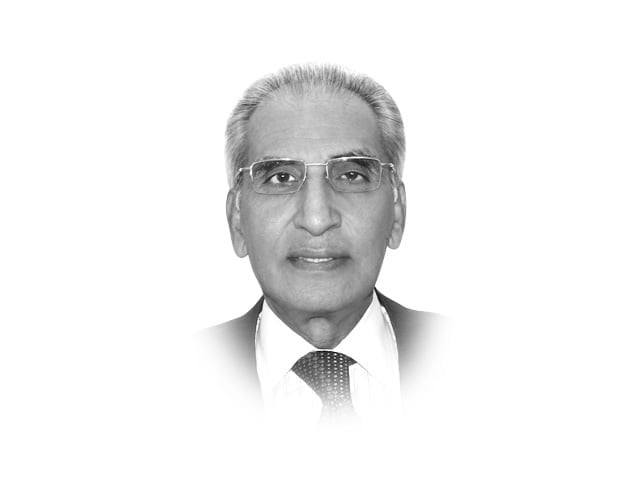Romney’s comments no cause for comfort
While little separates the two candidates on Pakistan, Romney's advisers are attached to the old Bush administration.

Nevertheless, given America’s global influence — though receding — the foreign policy debate between President Barack Obama and Governor Mitt Romney aroused interest everywhere, including in Pakistan. With the two candidates coming from starkly differing backgrounds and holding conflicting worldviews, it was inevitable that viewers tried to discern differences, though both preferred to hew to safe prescriptions. There was, however, little to differentiate between their views on major issues, whether China, Iran, or Afghanistan — though Romney tried to sound more hawkish on China and Iran. It was his intriguing remarks on Pakistan, which aroused great interest here. While President Obama said little other than to claim that had he sought Pakistan’s consent to raid Osama bin Laden’s compound, the al Qaeda leader would have escaped, Romney asserted that “it is not time to divorce” Pakistan. But then listed a laundry list of concerns: Pakistan’s growing nuclear arsenal, terrorism, weak civilian government and the ISI’s continued domination, all of which led him to the frightening conclusion that if Pakistan “falls apart, if it becomes a failed state”, it would be “extraordinarily dangerous to Afghanistan and the US”. At the same time, he agreed with President Obama on the liberal use of drones.
On Afghanistan, President Obama reiterated his commitment to bring the troops home by the end of 2014, with Romney endorsing this stand, but adding that he would focus on Pakistan to stabilise Afghanistan. None of the world’s grave global issues, such as climate control, poverty, food, water, energy or trade were mentioned by either candidate.
While these comments are not necessarily pointers to firm future policy, they can be helpful guides. While little change can be expected in President Obama’s possible second term, a Romney administration could represent a return to a conservative and Christian evangelical worldview. His people are likely to pursue many of President Bush’s policies, wherein allies were spurned, while multilateralism was trashed. Many of Romney’s national security advisers were closely associated with the Bush administration and have been strong supporters of policies that included torture. People such as Steven Bradbury, Charles Stimson, David Rivkin and John Bolton arouse concern amongst human rights activists.
Many of them are also architects of the Iraq war. In fact, Bolton favours “preemptive military action” against Iran, while Romney himself has been dismissive of President Obama’s attempts to use diplomacy and sanctions to persuade Iran to reverse its course. Last year, in an interview, he even confirmed that he would be “prepared to do it unilaterally if need be”.
Of course, President Obama has been a disappointment, but primarily because of exaggerated expectations of him and inadequate understanding of the US. Little consideration was given to the fact that a US president is not a Third World ruler, while the concept of checks and balances is so strong that even popular presidents are stymied by a determined Congress. Moreover, President Obama is a mix of soaring ambitions tempered by realism; a detached aloofness that avoids confrontations while opting for compromise, which makes him occasionally appear arrogant. Romney is a skilled politician, who is more comfortable in the company of rich and influential whites and ever willing to trim his sails to suit the occasion. He can also package and reinvent himself if needed, as is evident from his embrace of the evangelical Christians. There is, however, little to distinguish between the two parties on policy towards Pakistan.
Published in The Express Tribune, October 31st, 2012.















COMMENTS
Comments are moderated and generally will be posted if they are on-topic and not abusive.
For more information, please see our Comments FAQ